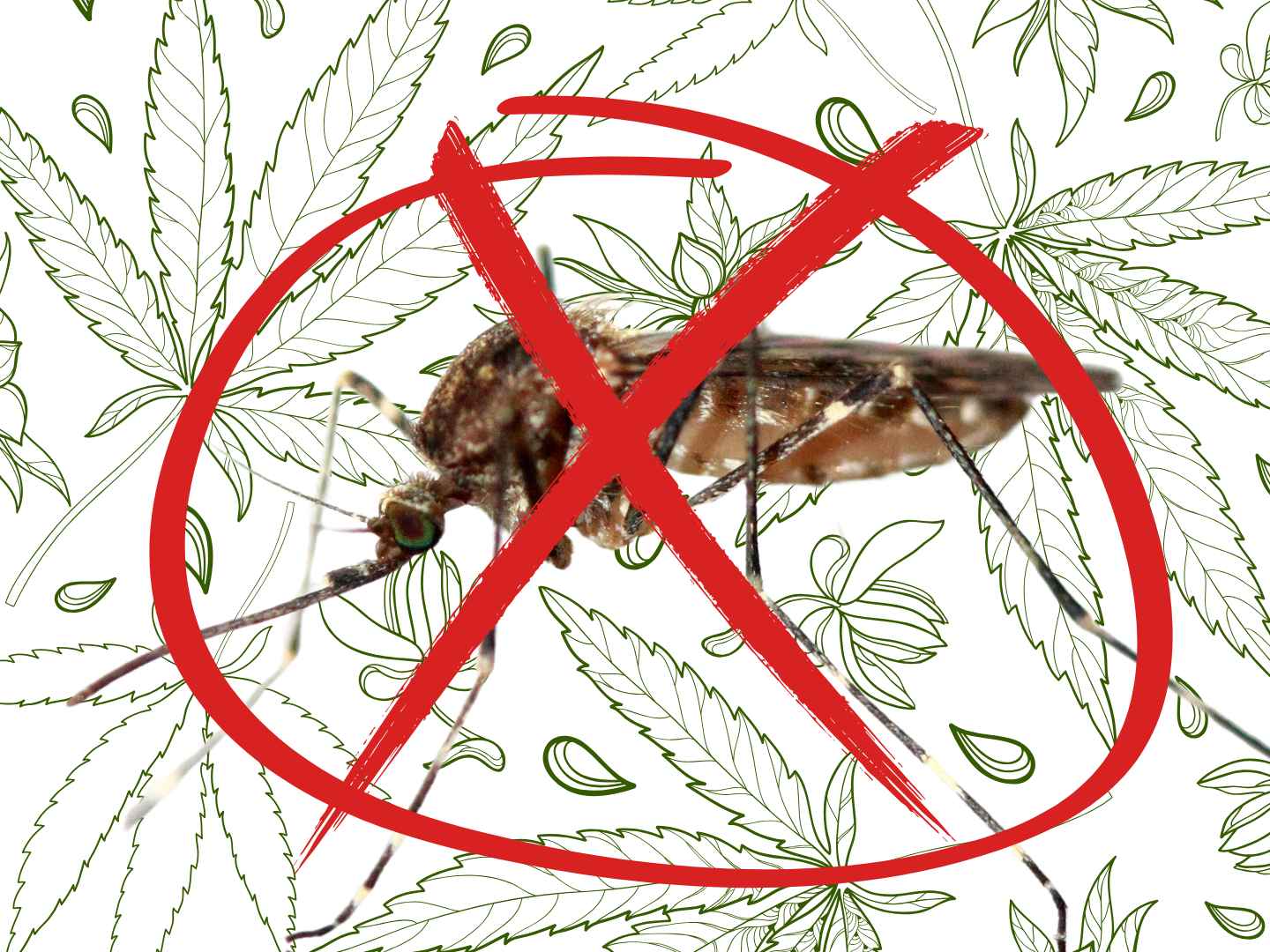How Hemp is Fighting the World’s Deadliest Animal

Hemp isn’t just for textiles, wellness products, or supplements anymore—it’s stepping into a whole new arena: pest control. New research suggests that hemp leaf extracts, particularly cannabidiol (CBD), might be the unexpected hero in combating one of humanity’s most dangerous enemies—mosquitoes. We’re not just talking about warding off a few itchy bites; we’re talking about effectively killing mosquito larvae, the early stage of life where these pests are most vulnerable.
A Surprising Mosquito Killer
Published in the journal Insects, a study led by Erick Martinez Rodriguez, a graduate student in entomology at The Ohio State University, reveals that hemp leaf extracts rich in CBD can annihilate mosquito larvae within 48 hours. Even more impressively, this effect was observed in both regular strains and those notorious for their resistance to conventional insecticides.
“It’s very important to be able to control these pests at an early stage, when they are at their most vulnerable,” said Martinez Rodriguez. Targeting larvae is crucial because adult mosquitoes can travel great distances and are infamous for spreading deadly diseases like malaria, Zika, and dengue fever. Traditional methods using synthetic insecticides have led to resistance and environmental damage, making the search for sustainable alternatives more pressing than ever.
A Natural, Sustainable Insecticide
This isn’t Ohio State’s first foray into nature-based pest control. Previous research identified natural mosquito-repellent properties in plants from Madagascar, leading researchers to investigate other botanical solutions. They turned to hemp—a variety of the cannabis plant that doesn’t get you high but is rich in CBD.
To test the insecticidal potential of hemp, the team pulverized dried hemp leaves, soaked them in methanol, and created a potent extract. “What was surprising was the small amount needed to be so deadly,” Martinez Rodriguez noted, highlighting how CBD bypassed the larvae’s resistance to other insecticides.
This breakthrough points to hemp as not just a crop for clothing or CBD wellness products but also as a cost-effective solution for pest control. With CBD proving lethal to mosquito larvae while being safe for humans and animals, hemp could usher in a new era of natural insecticides.
CBD and Its Impact on Non-Target Species
While the study is promising, researchers are proceeding with caution. Peter Piermarini, co-author and professor of entomology at Ohio State, emphasized the need to explore how CBD interacts with various proteins in both insects and mammals. “It’ll be interesting to learn more about how CBD interacts with various proteins in mammals and insects to understand why it’s safe for people but not insects,” said Piermarini.
The next steps involve investigating the potential impacts of CBD on non-target species, including crucial pollinators like honey bees, and understanding the ecological consequences of its widespread use.
Environmental Considerations and Future Directions
As the scientific community delves deeper into hemp’s insecticidal properties, the ecological implications of using CBD-infused solutions cannot be overlooked. Mosquito larvae inhabit aquatic environments, and introducing CBD to these habitats raises questions about its effects on other aquatic species. Comprehensive research is needed to ensure that while we curb mosquito populations, we’re not inadvertently harming the broader ecosystem.
Future research will also explore how CBD performs against other resistant mosquito species and pests, potentially broadening its scope as an eco-friendly biopesticide. Refining extraction methods could optimize CBD concentrations, making this solution even more effective and sustainable.
Hemp’s Potential in Pest Management
The implications of this study stretch far beyond mosquito control. As researchers explore the broader applications of CBD in pest management, hemp could become a key player in battling other agricultural pests and insects that pose public health risks.
There’s potential for hemp-based products to replace or supplement synthetic insecticides, offering a more environmentally friendly and targeted approach to pest control. But as always, developing these methods will require careful study to ensure they don’t disrupt the delicate balance of local ecosystems.
A Natural Solution with Promising Potential
The discovery of hemp’s insecticidal properties marks a significant step forward in sustainable pest control. By leveraging the natural compounds found in this versatile cannabis plant, we could reduce our reliance on harmful synthetic chemicals, making strides toward a greener and healthier planet.
As research continues, the promise of hemp extends beyond textiles and wellness, showcasing how this ancient plant can meet modern challenges in ways we’re only just beginning to understand. For now, hemp stands as a potent natural ally in the fight against one of the world’s deadliest creatures—one mosquito larva at a time.
Please note: You are not currently logged in. Only members can contribute comments. If you would like to contribute click the button below.

JUN
Wednesday
4
A Dispensary EventDragonfly Wellness |
Dragonfly Wellness
Community Clean Up
We're an organization that is dedicated to the idea of empowering our community.
Every Thursday morning we partner with our neighbors at the Geraldine E. King Women's Resource Center to clean up our neighborhood together! We encourage all patients, pharmacies and community members alike to join us!
We understand it's not always possible to donate financially. So we have created a Covid-safe activity to benefit our entire community by cleaning it up, connecting and getting out doors all while simply donating our time together.
Masks are required. Social distancing is enforced. Supplies such as gloves, trash pickers, bags and sharp buckets will be provided for all volunteers at the south side of our building
We cannot thank you enough for your generous donation of your valuable time.
|
||||||

JUL
Monday
21
A Physician EventBryan Doner, DO |
Compassionate Caregivers and Compassionate Certification Centers
PA Medical Marijuana Educational Forum – Cranberry Public Library
Diana Briggs, Founder of PA Compassionate Caregivers and Dr. Bryan Doner, CEO of Compassionate Certification Centers, will give an overview of our PA Medical Marijuana Program. In addition, we will complete the evening with a panel of experts from the MMJ Industry to answer all of your questions.
|
